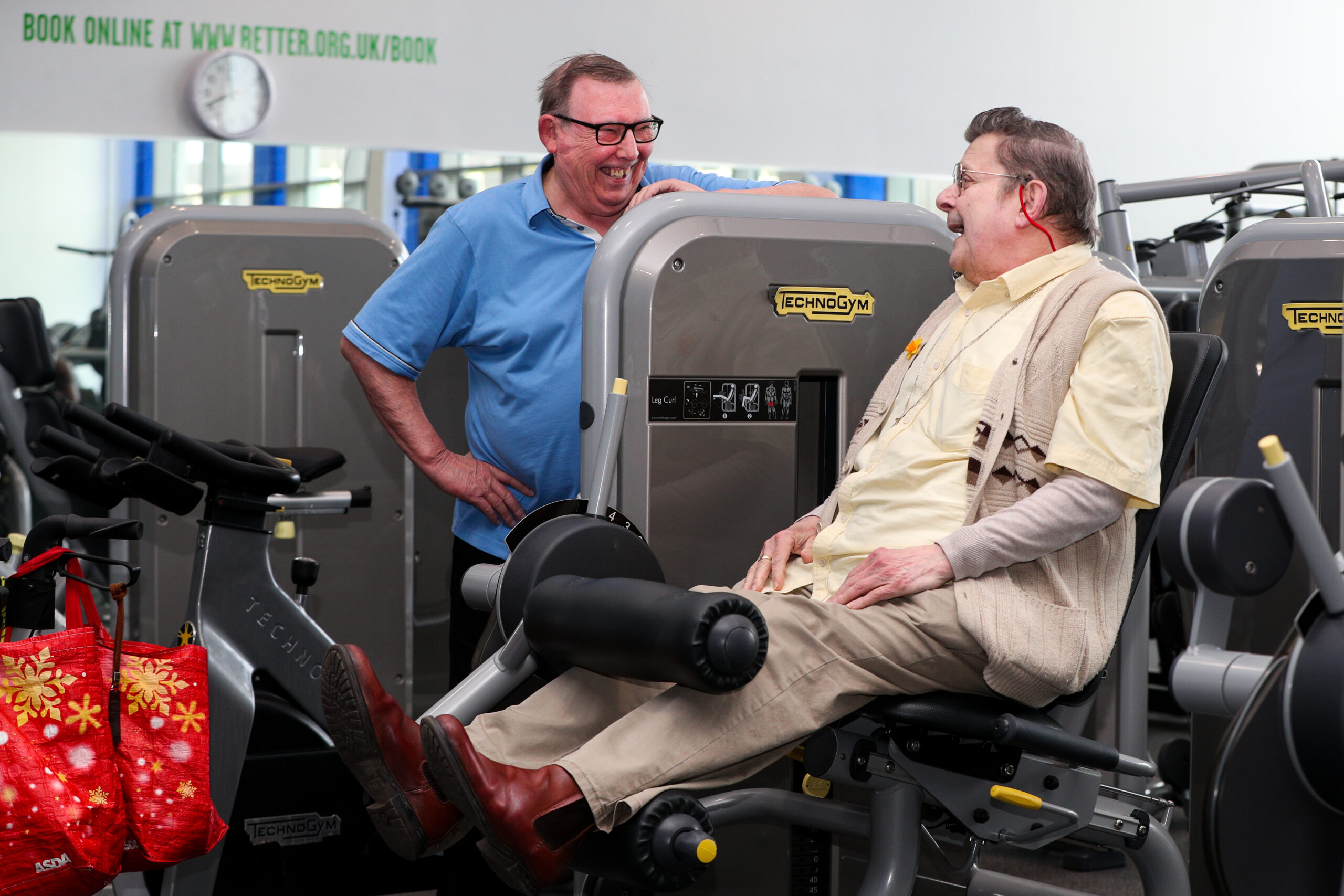Prehab4Cancer (P4C) enables cancer patients to engage in exercise, nutrition, and wellbeing assessments and interventions before, during and after their treatment.
Since its inception in 2019, P4C has supported approximately 3,000 patients in Greater Manchester in preparing for the physiological challenges of cancer treatments, and this year expanded into certain areas of Cheshire.
On what was an immensely proud night for the team, P4C has just won the Best Not for Profit Working in Partnership with the NHS award from the Health Service Journal (HSJ) – held in high esteem within the NHS for its focus on healthcare excellence.
Speaking at a celebration for the award, the pride was evident when Dr John Moore, P4C’s clinical director of prehabilitation and recovery, said: “Prehab4Cancer is now seen as an exemplar for prehab, and how we do it. We work with colleagues in Northern Ireland, Scotland, the north of England, Canada, Australia, and America, all because of the work we have done in this part of the world. To be able to say we represent Greater Manchester on a UK and international footing is absolutely phenomenal.”
The global interest in P4C has come from specialist research groups, clinical teams, entire hospitals, and some individuals.

Dr Moore, who is based at the Manchester University NHS Foundation Trust, also revealed P4C is the largest prehab programme in the world and added: “I can assure you it’s only going to get bigger. The more patients we have the more evidence we gather. To me, the one main outcome (of P4C) is quality of life, how our patients return to normal life. It’s simple but it’s science based.”
Our AHP Clinical Lead, Dr Zoe Merchant, added: “Ultimately, what we are trying to do is support people to be themselves, not be cancer patients. You come along to the local gym and you see Joan from down the road and you’re a normal person in the gym. Yes, you’re having cancer treatment but then you can come out of it and go back to the gym. That’s another reason doing it [P4C] in the community is very important.
“It’s not just about the scientific approach, it’s about what we must do from an exercise perspective, it’s about normalisation and encouraging people that once they’ve finished [treatment] they can get back to their lives.
“From a mental health perspective, even though there’s a lot more we can do in terms of providing psychological and mental health support, we often get told how well supported people feel coming off the programme in comparison to people who, unfortunately, haven’t had that opportunity. That’s just as important as the exercise side of the programme.”
The P4C programme is offered to patients with lung, colorectal (bowel) and oesophago-gastric (often referred to as upper GI) cancers.
We were delighted when independent research led to recurrent funding for our Greater Manchester scheme. It found that P4C hospital patients were able to be discharged home sooner and enjoyed a better recovery.
The strategy now is to extend the prehabilitation principle to more cancers, with a 10-year ambition to be treating up to 10,000 patients a year. This could grow the workforce up to 40 Level 3 exercise instructors and 40 Level 4 exercise specialists
P4C Programme Manager, Kirsty Rowlinson-Groves told the celebration: “We want to be able to offer a prehab service to anyone in Greater Manchester who is diagnosed with cancer. We want to be embedded within all cancer pathways and ensure all patients have access to the programme. This will come with the use of the data we are collecting to build an evidence base and a case for further long term, sustainable funding.”
Kirsty’s comments echo those of Greater Manchester city-region Mayor Andy Burnham. Speaking at a graduation ceremony for our Transformational Leadership Programme, he described P4C as ‘mission critical’ and called for us to extend the programme to more illnesses.
And our former chair, Pete Burt, added his voice to the aspiration to reach more cancer patients. Speaking at the HSJ award celebration, he said: “P4C is a great example of what can be achieved, and it carries on growing and growing. It doesn’t stop here; we’ll reach other conditions and illnesses that patients have.
“There’s so many people talking about how important physical activity is for everybody’s health and wellbeing. What you can actually see when you put into practice and put into practice well, is that it works, and it works at scale. Trying to do things at scale is very important – this is change in a big way.
“I’d like to see every single person become an evangelist for physical activity, evangelists for the work we do as a leisure sector because I’ve been to many conferences and physical activity is a magic pill, it’s a wonder drug and it’s this and it’s that and the other, but proving it, getting the wider population to buy into that is enormously difficult.”
Deputy Programme Manager, Jack Murphy, shared an anecdote with the gathering that put P4C’s impact into perspective. He said: “I was with some patients when one of them said, ‘I’m 72 and I’ve never been in a bloody gym in my life, but I love it and I’m never going to stop!’
“That’s what this programme is doing – it’s changing people’s lives forever.”
Our P4C programme is a co-designed transformation programme between GM Active and GM Cancer Alliance. What began as a test project in 2019 has now secured its future following the independent evaluation report.
Our Chair, Andy King, says: “This programme is designed to empower patients to take an active role in their cancer care. It prepares patients for the treatments and surgeries and aims to provide positive outcomes for patients during recovery and beyond.”
P4C team celebration – Dr John Moore is pictured third left, while Kirsty Rowlinson-Groves is pictured sixth right holding the HSJ award next to Dr Zoe Merchant (fifth right). Jack Murphy is pictured centre in the white shirt.